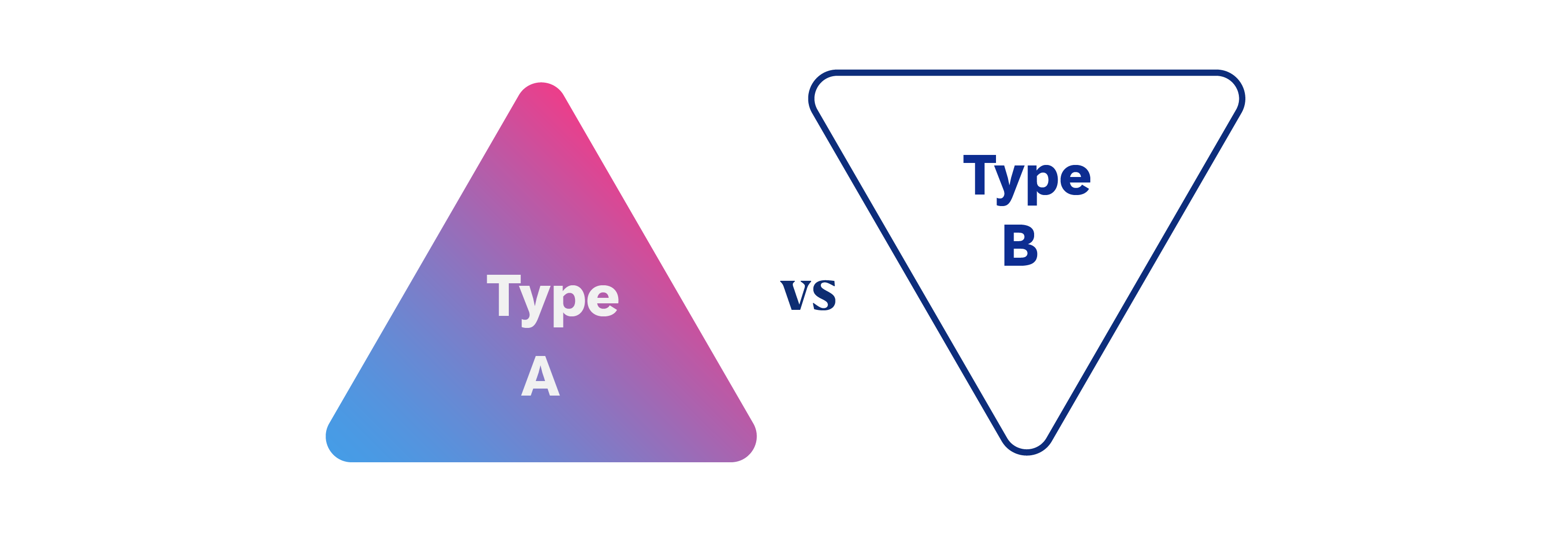| Traits | Competitive, ambitious, goal-oriented, impatient, workaholic, thrives under stress | Easygoing, social, creative, charismatic, enthusiastic, spontaneous, fun-loving | Analytical, detail-oriented, logical, independent, organized, focused | Introverted, sensitive, reserved, stable, avoids confrontation, values security |
| At work | Independent, strong delegation skills, high productivity, direct management style | Team-oriented, enjoys collaboration, persuasive, quickly bored, thrives in social settings | Logical, outcome-driven, values structure and routine, prefers clear roles | Task-oriented, prefers stability and routine, cautious, organized, values security |
| Alternative names | ESTJ, ENFP, adventurer, achiever, controller | ENTP, INTJ, helper, promoter | ESTJ, ESFJ, ISTJ, ISFJ, analyst, asserter, perfectionist | ESTP, ESFP, ISTP, ISFP, peacemaker, supporter |
| Pros | Goal-driven, thrives under pressure, excels at problem-solving, pushes boundaries | Enthusiastic, friendly, persuasive, great team player, motivating | Detail-oriented, logical, organized, reliable, excels in structured roles | Highly organized, dependable, stabilizing presence, supportive, thoughtful |
| Cons | Can be aggressive, impatient, struggles with work-life balance, may overlook emotions | Short attention span, prone to procrastination, may lack attention to detail | Can be overly critical, emotionally detached, resistant to fast change | Can be overly cautious, avoids confrontation, struggles with assertiveness |
| Growth path | Provide autonomy, set high but clear goals, recognize achievements | Engage in social interaction, provide flexibility, keep work engaging | Provide clear structure, avoid unnecessary emotional appeals, ensure logical explanations | Provide clear structure, avoid unnecessary emotional appeals, ensure logical explanations |
| Motivations | Success, financial rewards, leadership roles, challenges, fast results | Public recognition, social approval, fun, being liked, success in the spotlight | Solving problems, being in control, analytical challenges, structured work | Stability, security, long-term growth, appreciation from superiors |
| Attention-grabbing words | "Let’s get it done," "fast," "results," "immediate," "cutting-edge" | "You’re the best," "fun," "exciting," "people love you" | "How does that work?", "perfection," "learn more" | "Security," "stable career," "long-term growth" |
| Causes discomfort | Routine, inefficiency, vulnerability, loss of control | Public humiliation, unappreciated, ignored | Emotional unpredictability, lack of logic, indecisiveness, distractions | Rapid change, instability, conflict, feeling unvalued |
| Jobs | CEO, entrepreneur, manager, politician, sales executive | PR, entertainer, customer relations, event planner, marketing | Research scientist, analyst, lawyer, pilot, programmer | HR, administrative roles, counselor, teacher, social worker |









 Behavioral Competencies
Behavioral Competencies Cognitive Competencies
Cognitive Competencies Coding Competencies
Coding Competencies Domain Competencies
Domain Competencies


























Would you like to comment?